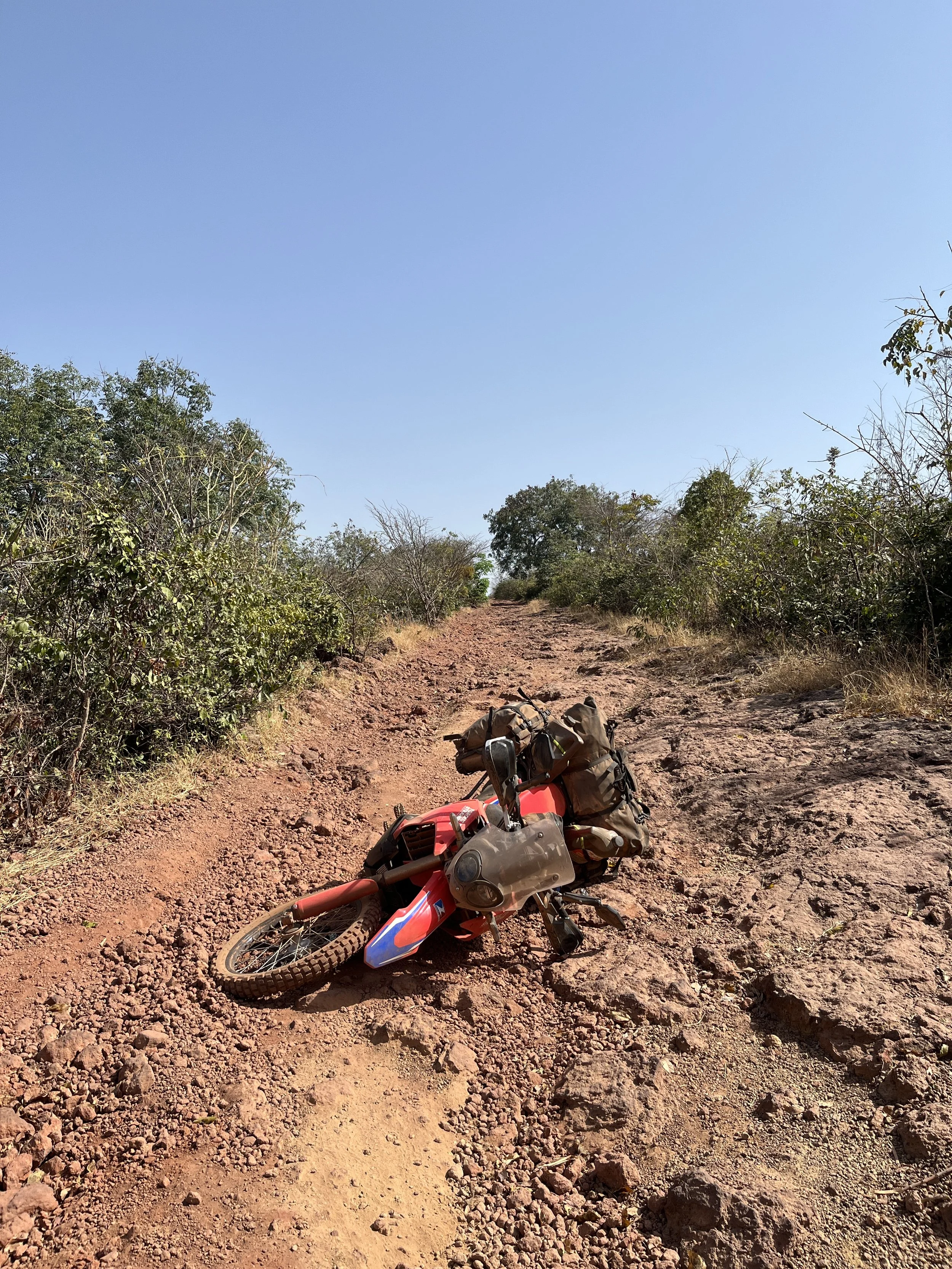I’l n’y a pas de problème is something you hear all the time in Guinea. If you ask for a water or road conditions or whatever. There never seems to be a problem. We were happy to leave the Senegal situation behind.
Entering Guinea felt like the right decision. And suddenly we were in a kind of offroad heaven. There was no street, only a beautiful mountain trail.
The trail was so small, only motorcycles could use it.
In fact, we wouldn’t see a car for the next 180 kilometers.
Every now and then, there’d be a tiny village consisting of a few huts. In this village, we were stopped by a customs officer. He stamped our passports, saying it should have been done at the border. We were not surprised: the customs officer at the border had obviously raised a few glasses prior to our arrival. He had also treated our import document (Carnet de Passages) with an exit stamp…
We carried on on the trails. There were a few easy water crossings. The only other traffic were groups of about 15 small motorcycle riders, each moto heavily loaded with goods.
At the border, our navigation system had a prognosis of more than 7 hours riding time for the 200 kilometers ahead of us. On the trails, it became clear why. They weren’t super hard to ride, but our average speed was very low nonetheless, between 20 and 30 kilometers per hour.
It got darker and darker – and it became clear we wouldn’t make it to the town of Labé, our destination of the day. We had not really anticipated how scarcely populated the area is. When it was completely dark, we reached the village Medina Salambandé. In the local mosque, prayer was just over. We asked people coming out if there is some kind of homestay or guesthouse in town. Someone made a phone call and then told us to follow him. With his moto, he guided us to what seemed to be the police station: in a completely dark room there were two cops and some other locals. The only light came from the headlamps the policemen were wearing. They wanted to see our passports and vaccination certificates, then we were told we could stay the night in the room next door. It had two old mattresses on the floor. We set up our mosquito nets and were really thankful we didn’t have to pitch a tent in the dark.
The next morning, we found out we were not at a police station but in fact at a town hall or community center. Mysta, the headmaster of the school next door, gave us some tips on the route ahead and explained to us the difficulties he has to deal with; his school doesn’t even have windows.
A few kilometers after the village we met the next challenge: a freshly fallen tree. The stump was still smoking. There was no way around it and it was too heavy to lift. So we had go above. We lifted the front wheels of the bikes up, the rear part sorted itself out with a little twist of the throttle.
The trails were as beautiful as the day before. We were ill-prepared though. We carried over 10 liters of extra fuel to address a fuel crisis that – as we found out later – had been resolved by now. What we didn’t carry: water and food. By now we had not eaten for more than 24 hours and started to dehydrate in the heat. Concentration went down – and so did we. We dropped our bikes two times each but without consequences for bikes or riders.
When we made it to Labé a day later than we had planned, we were very happy. Eating and a proper shower were high on the list. Next up: fixing the import of the bikes. We went to the local Douane office and went through the proper procedure with the Chief Officer who made same very angry phone calls to the border.
In Labé, we made a day trip to a waterfall. Here too, a tree tried to block our way but we managed to sneak through. With luggage, it might not have been possible.
We parked our bikes next to an old tree and hiked on for the last three kilometers. Almost. The trail got smaller and smaller until it was almost unidentifiable. And then, suddenly, there was a rustle in the bush in front of us: We saw a big black snake escape the scene. A really big one. We decided to let the waterfall be a waterfall and turned around. Later, we learned about the snakes in Guinea: the black mamba is present here, so are vipers and cobras. Every year, 3600 people die here from snake bites.
We hit the road again. The streets were really dusty. Some of the National Roads were really badly maintained dirt roads. Since Morocco, we’ve been surprised how relaxed the traffic is – Guinean drivers definitely picked it up a notch. Because the streets are so bad, everyone tries to avoid potholes by using the whole street. It reguarly happens that you turn around a corner and find a speeding truck in your lane. And it’s always the lighter vehicle that has to come up with a solution.
After another hot day, we reached the city of Guéckédou. There was no-one at the hotel we wanted to stay at for the night. So we decided to look for another one – but Momme’s bike wouldn’t start. There was no spark it seemed. We decided to check a few standard things like fuses and even rang up our friend Rainer, currently on a motorcycle trip in South America. Luckily he had an off day: he picked up the phone straight away and talked us through some things to look for. After an hour of trying, the bike started again. Most likely explanation: on the very bumpy road ahead of the hotel fuel spilled into the coal canister – and that prevented the bike from starting. If that happens, you cannot do much but wait until the fuel has evaporated. If we were better mechanics, we could get rid of the coal canisters entirely. Maybe in another life.
While we were working on the bike, hotel staff showed up and we decided to spend the night there. We had no options, really. Like in other places in Guinea, they made us take two separate rooms, and it’s never quite clear whether that’s a homophobic law or a business move. Anyway, we had to pay double.
As we reached the southern parts of Guinea, the landscape changed and became tropical: very green, lots of palm trees. Humidity was on the rise.
The result of wildfires became a common sight. We once even drove past a massive fire just by the side of the road. It was so hot we didn’t feel comfortable to stop for a photo.
The roads in Guinea’s south were considerably better than what we had seen up north so we quickly progressed towards the border.
Il n’y a pas de problème: the mountains and the technical problems were behind us. Ahead of us was the next country: Ivory Coast.
























